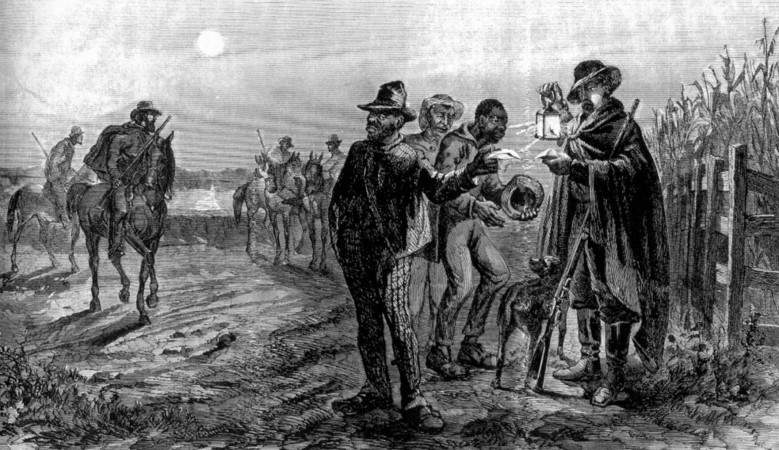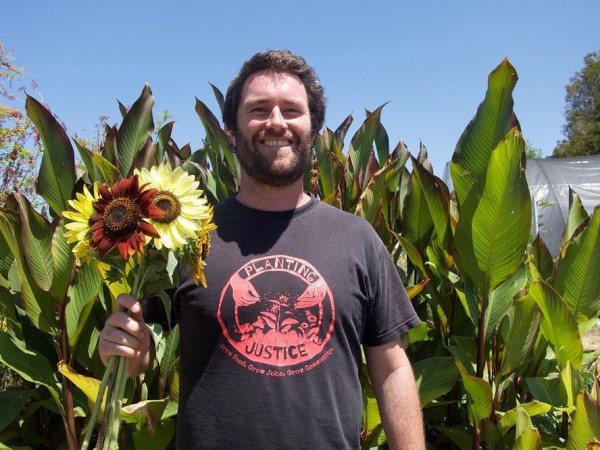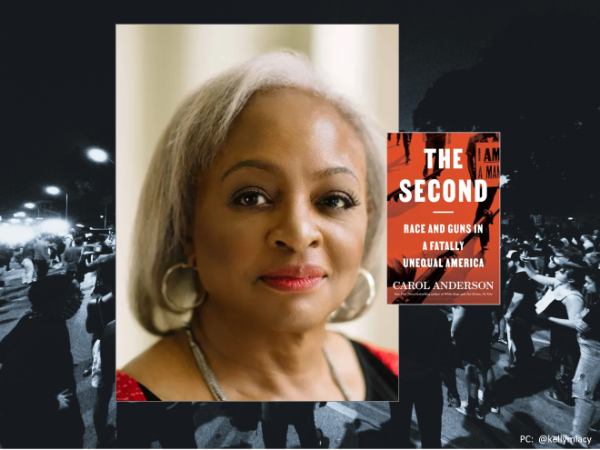“A well regulated Militia, being necessary to the security of a free State, the right of the people to keep and bear Arms, shall not be infringed". What's not to like?

Frederic B. Schell, "Depiction of slave patrol" 1863
For starters, the 2nd Amendment didn't apply to you if you were Black (free or enslaved) in 1791. But it worked well against you, in state militias aka slave patrols, to keep slavery going.
A professor of African American Studies at Emory University, Carol Anderson wrote The Second: Race and Guns in a Fatally Unequal America to see if anything’s changed in the years since then.
In her view, the 2nd Amendment is not really about guns but about race, specifically Black Americans, and how being Black greatly altered how this right applies to you.
For example:
- After the Civil War, states like Florida created Black Codes making it unlawful for “any negro, mulatto, or other person of color, to own … fire-arms or ammunition unless he first obtain a license", which would have been difficult to do in the segregated South.
- What began in the 1960s as the War on Crime has led to today’s mass incarceration imbalance where Black Americans are 5 times more likely to be sent to state prisons than White Americans. This means Black Americans disproportionately lose their right to things like voting, affordable housing, job opportunities, and yes, also firearms.
- Gun violence is a racial justice issue affecting Black Americans in numbers far exceeding their population size. Of all the races, Black Americans have the highest chances of getting shot, up to 10x higher than White Americans.
So the right to bear arms is here for all men created equal in America, but Black Americans have ended up being less equal than all men. Read this book if you want to learn more about issues like these, and possible solutions.

Gavin Raders, Planting Justice
In the meantime, we can support small businesses that are helping formerly incarcerated people with training and jobs to get back on their feet, such as:
- Lutunji’s Palate in Minneapolis,
- Down North Pizza in Philadelphia,
- Planting Justice in Oakland,
- beelove in Chicago, and
- Red Bay Coffee in San Francisco.
“Have you heard?” is our way of sharing another point of view on commonly held beliefs. Through this we hope to encourage curiosity, dialogue, and tolerance of diverse ideas.

